 Photo by Anna Shvets on Pexels.com Photo by Anna Shvets on Pexels.com Hot weather can be a challenge when it comes to feeding kids. Children are more susceptible to dehydration in the summer, and it is essential to keep them well-hydrated and nourished. Here are four types of foods that you can give your kids in hot weather to keep them healthy and energetic:
1 Comment
We think we found the one recipe that would provide breakfast, nourishment and a sweet-tooth solution in one 'bowl.' Some of the ingredients and their benefits are listed here:
Wanting to make these a healthier experience? Try these sugar substitutes:
Let us know how you feel about all this in the comments below.
Turnips are an incredibly versatile vegetable that offer a wealth of health benefits. Rich in vitamins and minerals, turnips provide essential nutrients such as vitamin C, potassium and magnesium – all of which help to support the immune system. They also contain dietary fiber, which helps to keep you feeling fuller for longer and can aid digestion by helping food move through your digestive tract more smoothly. Additionally, studies have shown that turnip consumption has been linked with lower risk of certain cancers due to their high antioxidant content – making them a great addition to any diet!
For those looking for easy recipes using this healthy vegetable: Main Course - Turnip Gratin Preheat oven 350°F (180°C) Peel 2 large turnips then cut into thin slices; place in 9-inch baking dish or gratin pan lightly greased with butter or oil. Sprinkle 1 cup (250 mL) shredded cheese over top; add salt & pepper if desired. Bake uncovered about 30 minutes until golden brown on top & tender when pierced with knife tip; let stand 10 minutes before serving hot from oven accompanied by green salad tossed in vinaigrette dressing if desired. Side Dish - Roasted Turnips Preheat oven 400°F (200°C) Wash 4 medium sized peeled turnip cubes then toss together in bowl with 3 tablespoons olive oil plus salt & pepper as desired; spread evenly on parchment paper lined baking sheet tray. Roast 25–30 minutes turning once half way through cooking time until golden brown outside but still slightly firm inside when pierced; serve warm sprinkled fresh herbs such as parsley oregano thyme etc., along side main course meal. Dessert - Caramelized Baked Apple Turnip Preheat oven 375 ° F(190 ° C) Peel and core equal amounts of apples and turnips (2-3 each) Cut into wedges and place into a baking dish Mix together
Bake covered 20–25minutes Uncover, sprinkle sugar over surface and bake 15–20minutes further Stir occasionally to caramelize all surfaces nicely Serve warm Top with ice cream 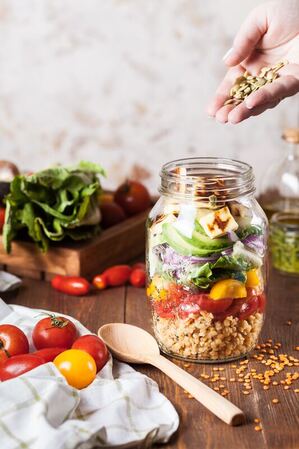 Photo by Mariana Medvedeva on Unsplash.com Photo by Mariana Medvedeva on Unsplash.com There are a few ways a young person newly on their own, or just out of college, could prepare food for themselves. One option is to plan meals for the week ahead of time and make a grocery list based on those meals. This helps ensure the necessary ingredients are purchased and reduces the frequency of trips to the grocery store. Consider meal prepping, or preparing several servings of a dish at once and storing them for easy reheating throughout the week. Simple meals like salads, stir fries, and pasta dishes are also relatively easy to prepare and can be customized with various ingredients to keep things interesting. If you are unsure of how to cook certain dishes or techniques, there are many online resources and tutorials available to help learn and improve skills. Eating fish is an excellent way to incorporate lean protein and healthy fats into your diet. However, some fish recipes can be high in calories and saturated fat due to added ingredients like cream sauces or deep-frying methods. Fortunately, there are many ways to make fish recipes healthier without sacrificing flavor.
By making these simple swaps and substitutions, you can enjoy the health benefits of fish while still enjoying delicious meals. Eating healthier is important for several reasons.
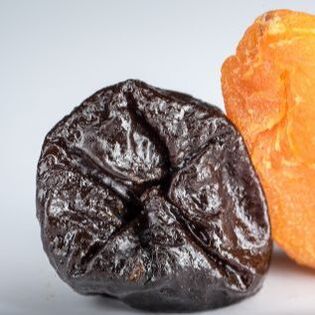 Photo by Needpix.com Photo by Needpix.com Prunes, also known as dried plums, are a nutrient-dense food that is rich in vitamins, minerals, and fiber. They are an excellent source of antioxidants, which can help protect the body from damage caused by harmful molecules known as free radicals. This makes prunes a great food to consume to help boost overall health and well-being. Prunes are also an excellent source of fiber, which is important for maintaining digestive health and regularity. They help to promote the growth of healthy gut bacteria, which can improve immunity and overall health. Additionally, consuming prunes can help regulate blood sugar levels, which is important for those with diabetes or insulin resistance. One specific benefit of prunes is their potential to support bone health. They are a particularly rich source of vitamin K, which plays a key role in bone health and helps to prevent osteoporosis. Additionally, they are high in other nutrients such as calcium, magnesium, and potassium, which can also aid in bone health. 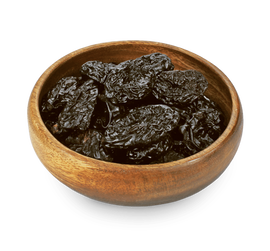 Photo by Glenda on CleanPNG.com Photo by Glenda on CleanPNG.com In addition to their nutritional benefits, prunes have also been found to have potential health benefits for cardiovascular health. Research suggests that consuming prunes can help to reduce LDL cholesterol levels, which is important for reducing the risk of heart disease. Moreover, prunes are also high in potassium, which helps to regulate blood pressure levels and is another key factor in maintaining cardiovascular health. Overall, prunes are an incredibly nutritious food that can offer many potential health benefits. They are easy to incorporate into diets and can be eaten as a snack or added to recipes. For those interested in maintaining or improving their overall health and well-being, prunes are a great food to consider incorporating into their diet.
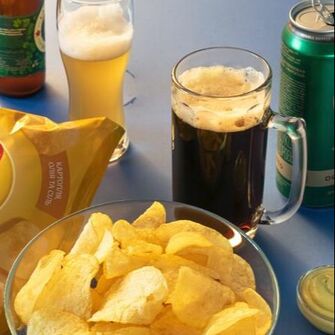 Photo by Olga Kozachenko on Unsplash.com Photo by Olga Kozachenko on Unsplash.com Ultra-processed foods, as the name suggests, are foods that have undergone a high degree of processing and contain a large number of added ingredients. They are often high in calories, unhealthy fats, added sugars, and sodium. Several studies have shown that a diet high in ultra-processed foods can increase the risk of obesity, type 2 diabetes, cardiovascular disease, and other health problems. One of the reasons for this is that ultra-processed foods often contain high amounts of added sugar, which can lead to spikes in blood glucose levels and contribute to the development of insulin resistance and type 2 diabetes. Additionally, many ultra-processed foods are high in unhealthy fats, which can increase the risk of heart disease and other health problems. Another issue with ultra-processed foods is that they tend to be low in fiber and nutrients. Consumption of these foods can lead to a lack of essential vitamins and minerals needed for optimal health. This is a significant problem, as a large proportion of the population relies on ultra-processed foods as a major source of their daily caloric intake.  Photo by Needpix.com Photo by Needpix.com Some studies suggest that the processing itself may contribute to the negative health effects of ultra-processed foods. For example, the use of high heat and pressure in the manufacturing process can lead to the development of harmful by-products such as acrylamide, which can increase the risk of cancer. It is important to limit intake of ultra-processed foods in order to maintain optimal health. A diet that is high in whole foods, such as fruits, vegetables, lean proteins, and whole grains, is associated with a reduced risk of chronic diseases and should be prioritized. Education and awareness campaigns around the negative impacts of ultra-processed foods could assist in reducing consumption of these products and promote a healthier lifestyle.
Jacquelyn Cafasso writes for Healthline Nutrition to help us understand how honey wins out:
But both honey and agave nectar are caloric sweeteners and offer little added nutritional value. Honey is better than agave nectar because it is:
Read Cafasso's article, in its entirety, on Healthline's website.
The National Institutes of Health's Office of Dietary Supplements has a bit to say about vitamin A too. Check out their Vitamin A and Carotenoids Fact Sheet for Consumers.
Kids like snacks and you can get them to love healthy snacks!
Let's put those ripening berries to work!  8300100 © Newphotoservice | Dreamstime.com 8300100 © Newphotoservice | Dreamstime.com Vitamins have different jobs to help keep the body working properly. Some vitamins help you resist infections and keep your nerves healthy, while others may help your body get energy from food or help your blood clot properly. Most older adults can get all the nutrients they need from foods. Here are a few examples of important vitamins and their food sources:
National Nutrition Month® is an annual campaign created 50 years ago in 1973 by the Academy of Nutrition and Dietetics (AND). During the month of March, everyone is invited to learn about making informed food choices and developing healthful eating and physical activity habits.
Visit AND’s website for more information, including this year's theme, 50 Ideas to Get Involved and campaign resources available in multiple languages. Join us in congratulating the Academy of Nutrition and Dietetics on their 50th Anniversary of National Nutrition Month®!  8819253 © Sergey Zavalnyuk | Dreamstime.com 8819253 © Sergey Zavalnyuk | Dreamstime.com Overall there is no denying how wonderful pancakes are - especially during colder months when we need some extra warmth (and yumminess!). And since so many cultures from all over the globe have their own versions of this classic dish it really shows how versatile these little treats really are - perfect for anyone who loves good food on chilly days. Grace Linden's recent article A Brief History of Pancakes, published on Smithsonian Magazine online, might just be enough to get some ideas going for a diversion from the ordinary. Click below to check out a collection of 18 pancake recipes from around the world. Regularly under-eating can lead to a number of mental, physical, and emotional health issues. Healthline's Franziska Spritzler gives these nine signs to help you know if you may need to eat more.
Arlene Semeco, MS, RD, seems to think so. Click the button below to see why she believes ginseng has benefits for your health. She lists SEVEN reasons...
Sucrose, glucose, and fructose are three common types of sugar that are absorbed differently and have slightly different effects on the body. Whether they occur naturally in foods or are added to them also makes a big difference in how they affect your health.
Save money when food shopping! View the U.S. Department of Agriculture's resources and tips for eating healthy on a budget.
Here's an article we had a hard time opening. But we did. And because we all want to be healthy, we know you will want to open and read it too.
This article explains why commercially fried foods are bad for you and provides some healthier alternatives to consider (thankfully). Preliminary findings from an NIA-funded study found that a daily multivitamin might improve cognition in older adults or protect cognitive health with age.
Check out Kaitlyn Berkheiser's article on the health benefits of vitamin B12, based on science. She starts by writing that Vitamin B12 plays a key role in many aspects of health and may support bone health, red blood cell formation, energy levels, and mood. Then read Melissa Grove's article on Vitamin B12 dosage.
If you or someone you know is experiencing a mental or behavioral health crisis, free help is immediately available.
The 988 Suicide and Crisis Lifeline is available 24 hours per day, 7 days per week, via phone, text and online chat, offering people compassionate care and support from trained crisis counselors for individuals, families or their loved ones. One does not have to be suicidal to call 988 but can reach out when experiencing any behavioral health crisis. 988 call services are available in English and Spanish, along with interpretation services in more than 150 languages. Texting 988 and online chat are currently available only in English. Veterans and military service members can call 988 and press “1” to connect with the Veterans Crisis Line. |
Food & Nutrition
What we eat ultimately provides fuel for life. Here we strive to share information that you may find helpful or beneficial on your journey to living a more healthy life. Archives
July 2023
Categories
All
|


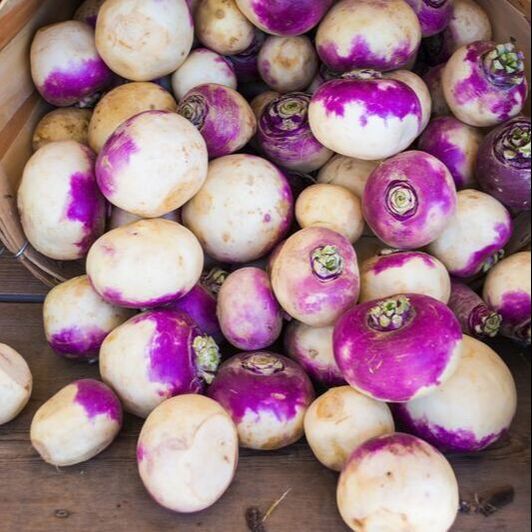

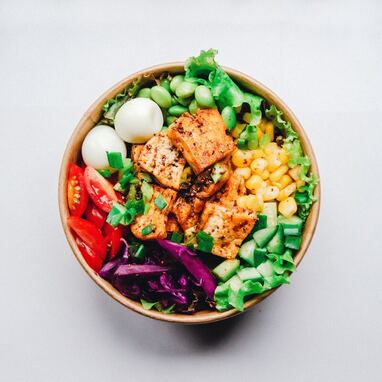








 RSS Feed
RSS Feed
